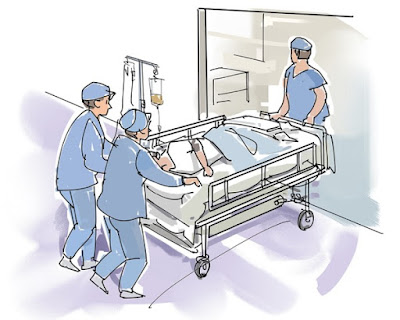Aphasia is one of those conditions you can't hide for long. You can say, "I'm having a senior moment," but when you say it all the time and you're a stroke survivor, you have to come to terms that it may likely be aphasia.
Here's a quick rundown of the 2 million people, in the US alone, who have lost all, or part, of the ability to use words to communicate:
- Aphasia is an impairment of language that can affect both the production and comprehension of speech and impair a person’s ability to read and/or write.
- Aphasia is always caused by an injury to the brain.
- Stroke is the most common cause of brain injury that leads to aphasia.
- Other brain injuries from head trauma, infections, or tumors can also cause aphasia.
- Aphasia can be mild and only affect a single aspect of language OR it can be so severe that is incredibly difficult to communicate with the patient.
- Most commonly, multiple aspects of communication are impaired.
- Some people can recover from aphasia, but if they have it longer than 2 or 3 months it is unlikely they will recover.
Aphasia is defined as an impairment language caused by an injury to the brain, usually due to stroke, but it could happen from any type of brain injury.
Broca's aphasia (non-fluent aphasia)
Broca’s aphasia or expressive aphasia is when people find it very difficult to find and say the right words, although they probably know exactly what they want to say.
People with Broca's aphasia may only be able to say single words or very short sentences, although it’s usually possible for other people to understand what they mean. This can be very frustrating.
The features of Broca's aphasia are:
Wernicke's aphasia (fluent aphasia)
Wernicke’s aphasia or receptive aphasia is when someone is able to speak well and use long sentences, but what they say may not make sense. They may not know that what they're saying is wrong, so may get frustrated when people don’t understand them.
The features of Wernicke's aphasia are:
Primary progressive aphasia (PPA)
Primary progressive aphasia (PPA) is a condition where language capabilities become slowly and progressively worse, leading to a gradual loss of the ability to:
- Read.
- Write.
- Speak.
- Understand what other people are saying.
Deterioration can happen slowly, over a period of years. Other mental functions such as memory, reasoning, insight and judgement are not usually affected.
It's important to get an accurate diagnosis for PPA. This is to rule out other degenerative brain disorders like Alzheimer's disease where language and memory and reason are affected.
The operative word here is "may." I have mostly Broca's aphasia, but I have no trouble with written expression. In fact, words come about easily through writing rather than speaking.
I was a Communication prof so being able to say words clearly was important in my playbook. Am I disgruntled at my speaking ability? You bet. Would I ever accept the stroke? No way. But if I don't fall anymore, that would be good enough for me.


















